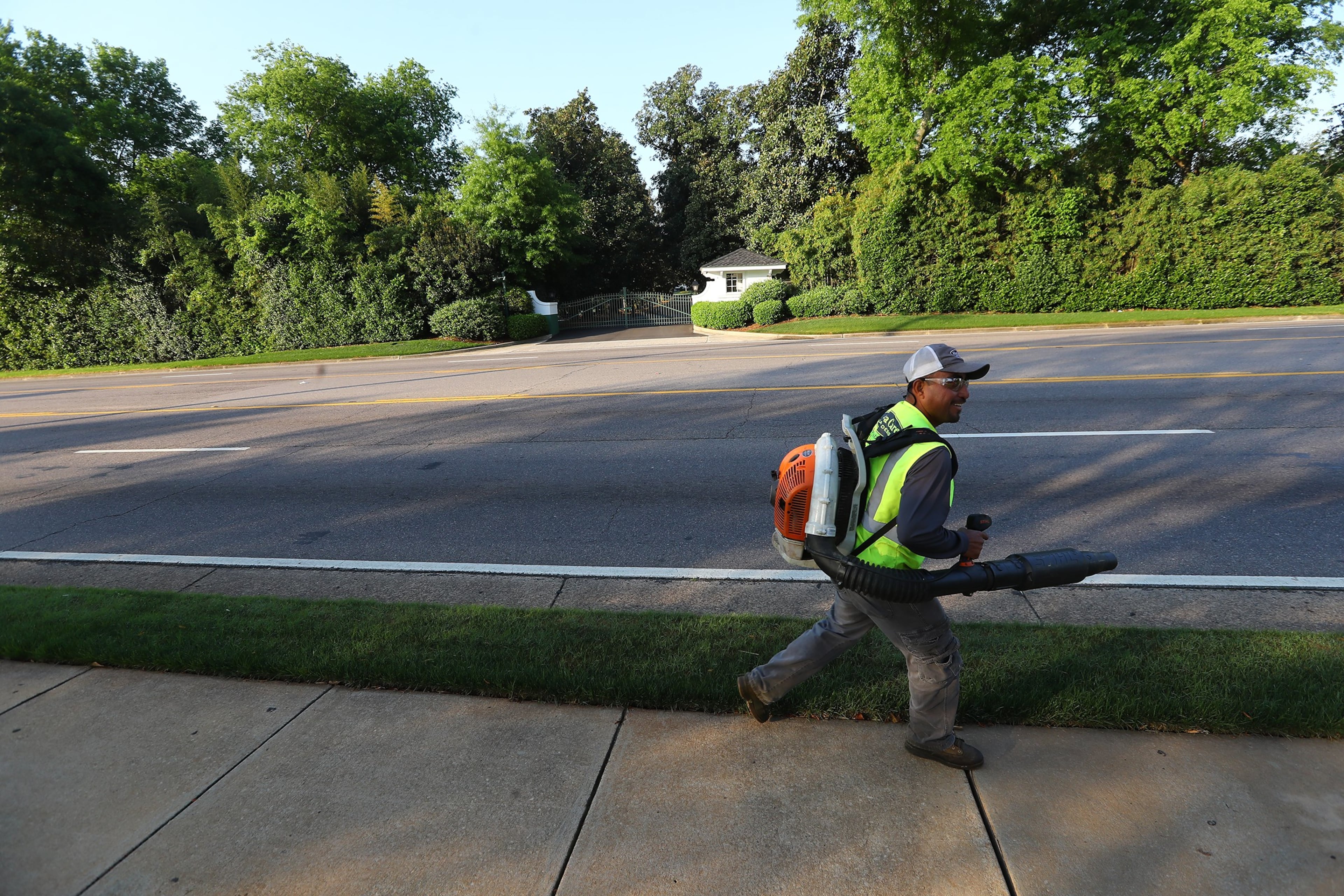All MLB games in Arizona? A Masters in November? Is this really needed?









We all want to see sports again. What we want, however, doesn’t necessarily dovetail with the greater human need. We need to make ourselves as secure as is possible in as dangerous a time as our nation has seen in a century. We still haven’t fully comprehended how COVID-19 works, and we haven’t yet arrived at anything approaching a cure.
Most of us are sheltering in place. Almost every aspect of sports has been shut down. And yet, in the span of 24 hours, we were handed two reminders of how stubborn the people who run sports can be.
On Monday, Augusta National announced it has reset the dates for the Masters to November. Said chairman Fred Ridley, quoted in a release: "We remain very mindful of the extraordinary and unprecedented challenges presented by the coronavirus around the world. As such, we continue to keep in close contact with local, state and national health authorities to help inform our decisions."
Meaning: Just because the calendar now says Masters Week will be Nov. 9-15 doesn’t mean that’s what will happen. Apologies for repeating myself, but we’re all dealing in unknowns, the greatest being: When will it be safe again?
For now and for as long as it takes to get a handle on this pandemic, no other need matters. And as much as I like sports, I also recognize that the NCAA's decision to cancel March Madness could well have saved thousands of lives. If that sounds like an overstatement, I refer you to Joshua Robinson's report in The Wall Street Journal. It's behind a paywall, but its headline offers much of what you need to know: "The Soccer Match that Kicked Off Italy's Coronavirus Disaster."
It was a Feb. 19 UEFA Champions League game between Atalanta of Italy and Valencia of Spain. Atalanta is based in Bergamo, a smallish town. Because of ticket demand, the match was moved to the San Siro in Milan, 34 miles from Bergamo. The San Siro seats 81,000, nearly four times as many as Atalanta’s home stadium. Because of the venue change, nearly everyone in attendance — Valencia fans, too — came from outside the big city.
Dr. Francesco Le Foche, an immunologist based in Rome, told Robinson: “Two weeks after Feb. 19, there was an incredible explosion of cases. The match played a huge role in disseminating coronavirus throughout Lombardy and in Bergamo in particular.”
As wistful as our weekend without a Final Four just was, imagine if the tournament had started with fans in the stands from coast to coast. Imagine if the NBA kept playing another week. Imagine how much worse the numbers would be today.
Back to our question: When will it be safe again? The answer needs to be known in workplaces and stores and churches before we get around to worrying about sports. Sports, by definition, are non-essential. Maybe in another month or two, it will be safe to gather in numbers greater than 10 at distances nearer than six feet. Maybe.
As for the Masters: If the only way you can play a golf tournament, even the world’s most famous one, is seven months after its scheduled date, why play it at all? The Tradition Like No Other is about azaleas, which won’t be blooming on the far side of Halloween. Given that there’s another Masters scheduled for April 2021 — five months after the 2020 edition’s new dates — where would be the harm in saying, “Stay healthy, folks, and we’ll see you in the spring, and we promise there’ll be azaleas”?
The second re-scheduling development arrived in the form of MLB's apparent plan to start its season — and continue there for who knows how long — in Arizona next month with every team playing games in spectator-free ballparks, most of them minor-league ones. The teams would be kept in a sort of quarantine at hotels. This plan, ESPN's Jeff Passan reported, "has the support of high-ranking federal public health officials who believe the league can safely operate amid the coronavirus pandemic."
The initial reaction is to say that this sounds like another MLB trial balloon — remember the pick-your-playoff-opponent howler of a couple of months back? — and to stumble over these words: "can safely operate amid the coronavirus pandemic." Is that possible? Phoenix hasn't been hit as hard as New York or Seattle or New Orleans, but where in our world is safe? (Per the New York Times' grim map, there have been 31 deaths in Phoenix.)
And that question again: If your best idea about how to resume playing is to cocoon 30 teams in the desert and have the rest of us watch on TV, is it worth the convoluted effort? Yes, professional sports exist to make money, and nobody makes money if nobody’s playing ball. Still, the thought of MLB thinking of playing — and playing NEXT MONTH — when the country is essentially under lockdown sounds, in a word, ludicrous.
There are some services that merit being resumed ASAP. Sports do not. I’d love to be able to go cover a game right now; I’d also love to be able to go to the grocery without a face mask. My intent isn’t to get gloomier with every daily missive, and I understand how much ballgames mean to us. (For the umpteenth time: I’m a sportswriter.) But with the Masters and especially with MLB, the zeal to restart may be overriding the need to restart.
We must get this virus under control. Only then should we concern ourselves about who’s on first.

